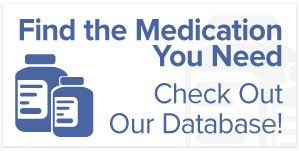Angina attack, additionally referred to as angina pectoris, is a health condition that happens when your coronary arteries are narrowed or blocked, depriving the heart muscles of blood that is full of oxygen. The discomfort brought on by the decreased circulation in the chest might also radiate to the arms, shoulder blades, neck region, jaw, spine, and stomach.
How Serious Is an Angina Attack?
9.4 million Americans are thought to suffer from angina, as reported by the American Heart Association. Both steady and uncontrolled angina are included in this. Additionally, in the US, 500 thousand people suffering from angina are identified annually.
Angina tends to be more prevalent in older folks; ten percent of individuals older than 75 are thought to have the ailment. Although men are more inclined than women to suffer from angina, the gender difference is getting smaller as more women acquire risk factors, including smoking and being overweight.
Since an angina episode suggests that the cardiac muscle is not getting adequate amounts of oxygen-rich blood, it may indicate a significant medical condition. Typically, a number of coronary arteries, the ones which feed blood to the heart muscle, have partial blockages.
Even though an angina attack does not constitute a heart attack, rather it is a symptom that the person may be more susceptible to one or more heart-related illnesses. Angina can occasionally worsen into a condition that is more dangerous, such as a condition called unstable angina or a stroke.
It is crucial to remember that not every chest discomfort is due to angina; there are various other possible reasons, some of which may be less severe.
Nevertheless, you ought to get emergency medical assistance if you feel discomfort or pain in your chest that fails to go entirely with rest or medicine or if you have additional symptoms like difficulty breathing, wooziness, or sweating.
Physical exertion, mental strain, severe temperatures, or right after a big meal is the usual causes of angina episodes. The feeling of discomfort typically subsides within a few moments with rest or medicine like nitroglycerin. However, if the discomfort continues, it can indicate an increasingly serious cardiac disease, such as cardiac arrest, and you should get help right once.
In general, treatment aims to lessen angina attacks’ frequency and severity, stop or slow the course of coronary artery disease (CAD), and lower the risk of a cardiac event and associated complications.

Let Rx Helper Help You
Let Rx Helper help you with your beta blockers and other medicines you need for Angina treatments. We offer affordable prescription assistance services to those without health insurance and who have been diagnosed with heart problems.
With optimum services of trusted healthcare brokers who connect patients to medical professionals, Rx Helper aids anyone in need in collaboration with various organizations and philanthropists working to make medicine more affordable in America. Contact us right away!



